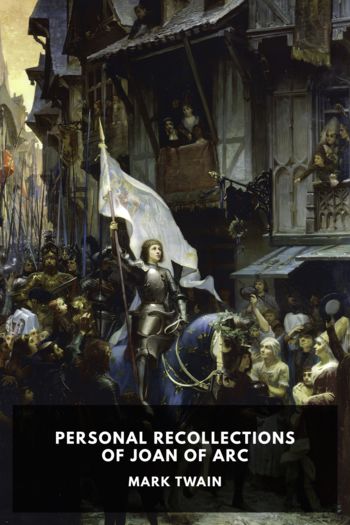A Connecticut Yankee in King Arthur’s Court by Mark Twain (my reading book .TXT) 📕

- Author: Mark Twain
Book online «A Connecticut Yankee in King Arthur’s Court by Mark Twain (my reading book .TXT) 📕». Author Mark Twain
Education is a great thing. This was the same youth who had come to West Point so ignorant that when I asked him, “If a general officer should have a horse shot under him on the field of battle, what ought he to do?” answered up naively and said:
“Get up and brush himself.”
One of the young nobles was called up now. I thought I would question him a little myself. I said:
“Can your lordship read?”
His face flushed indignantly, and he fired this at me:
“Takest me for a clerk? I trow I am not of a blood that—”
“Answer the question!”
He crowded his wrath down and made out to answer “No.”
“Can you write?”
He wanted to resent this, too, but I said:
“You will confine yourself to the questions, and make no comments. You are not here to air your blood or your graces, and nothing of the sort will be permitted. Can you write?”
“No.”
“Do you know the multiplication table?”
“I wit not what ye refer to.”
“How much is nine times six?”
“It is a mystery that is hidden from me by reason that the emergency requiring the fathoming of it hath not in my life-days occurred, and so, not having no need to know this thing, I abide barren of the knowledge.”
“If A trade a barrel of onions to B, worth two pence the bushel, in exchange for a sheep worth four pence and a dog worth a penny, and C kill the dog before delivery, because bitten by the same, who mistook him for D, what sum is still due to A from B, and which party pays for the dog, C or D, and who gets the money? If A, is the penny sufficient, or may he claim consequential damages in the form of additional money to represent the possible profit which might have inured from the dog, and classifiable as earned increment, that is to say, usufruct?”
“Verily, in the all-wise and unknowable providence of God, who moveth in mysterious ways his wonders to perform, have I never heard the fellow to this question for confusion of the mind and congestion of the ducts of thought. Wherefore I beseech you let the dog and the onions and these people of the strange and godless names work out their several salvations from their piteous and wonderful difficulties without help of mine, for indeed their trouble is sufficient as it is, whereas an I tried to help I should but damage their cause the more and yet mayhap not live myself to see the desolation wrought.”
“What do you know of the laws of attraction and gravitation?”
“If there be such, mayhap his grace the king did promulgate them whilst that I lay sick about the beginning of the year and thereby failed to hear his proclamation.”
“What do you know of the science of optics?”
“I know of governors of places, and seneschals of castles, and sheriffs of counties, and many like small offices and titles of honor, but him you call the Science of Optics I have not heard of before; peradventure it is a new dignity.”
“Yes, in this country.”
Try to conceive of this mollusk gravely applying for an official position, of any kind under the sun! Why, he had all the earmarks of a typewriter copyist, if you leave out the disposition to contribute uninvited emendations of your grammar and punctuation. It was unaccountable that he didn’t attempt a little help of that sort out of his majestic supply of incapacity for the job. But that didn’t prove that he hadn’t material in him for the disposition, it only proved that he wasn’t a typewriter copyist yet. After nagging him a little more, I let the professors loose on him and they turned him inside out, on the line of scientific war, and found him empty, of course. He knew somewhat about the warfare of the time—bushwhacking around for ogres, and bullfights in the tournament ring, and such things—but otherwise he was empty and useless. Then we took the other young noble in hand, and he was the first one’s twin, for ignorance and incapacity. I delivered them into the hands of the chairman of the Board with the comfortable consciousness that their cake was dough. They were examined in the previous order of precedence.
“Name, so please you?”
“Pertipole, son of Sir Pertipole, Baron of Barley Mash.”
“Grandfather?”
“Also Sir Pertipole, Baron of Barley Mash.”
“Great-grandfather?”
“The same name and title.”
“Great-great-grandfather?”
“We had none,





Comments (0)